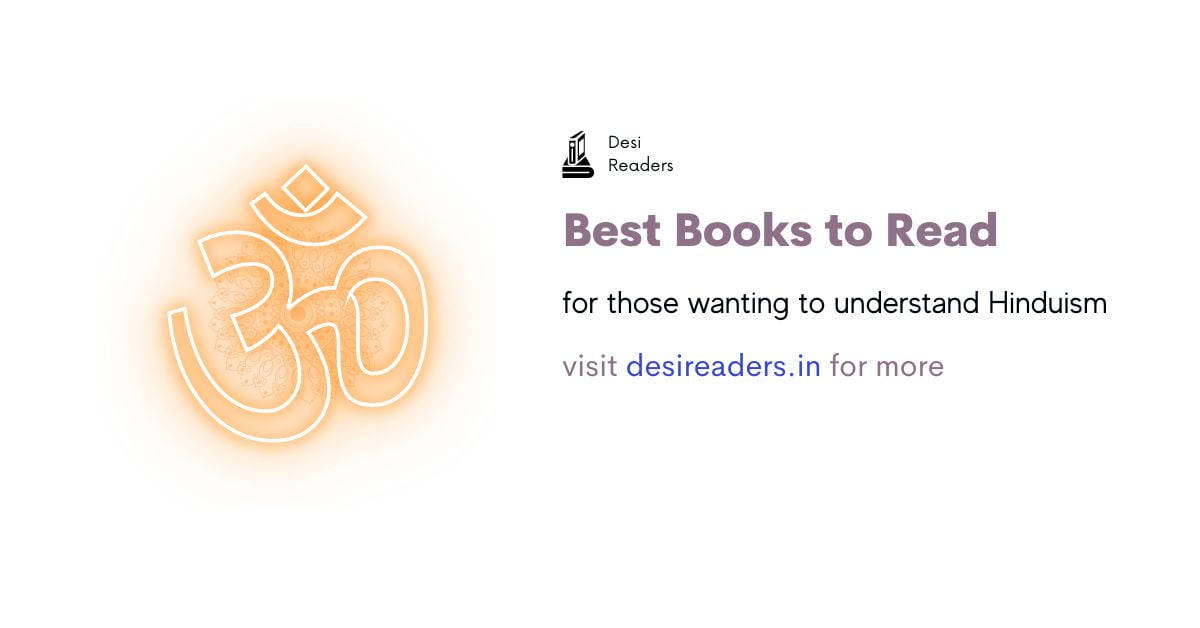Interested in Hinduism? Here is a list of books you must read to understand the Hindu philosophy and the basics of Dharma
Hinduism, one of the oldest surviving civilisations, is a testament to the enduring values and profound richness embedded within its system of beliefs and practices. Rooted in ancient scriptures like the Vedas and the Upanishads, Hindu philosophy offers timeless wisdom that transcends the vicissitudes of history. The Bhagavad Gita’s teachings on duty and detachment, the Upanishads’ exploration of the self and ultimate reality, and the Yoga Sutras’ guide to mental and physical discipline collectively form a comprehensive framework for living a balanced and meaningful life. Despite numerous external and internal conflicts over millennia, Hinduism’s adaptability and resilience have allowed it to thrive. This adaptability is evident in its inclusive philosophy, which embraces diverse paths to spiritual realisation and promotes harmony, compassion, and ethical living. The richness of Hinduism lies not only in its profound metaphysical insights but also in its practical guidance for achieving personal growth, inner peace, and social harmony. By engaging with Hindu texts and philosophies, one can appreciate the civilisation’s deep-rooted wisdom and the timeless values that continue to inspire and guide millions worldwide.

Learning about Hindu philosophy can offer numerous benefits, contributing to personal growth, a deeper understanding of the self, and a more peaceful and contented life. Here are several vital reasons why studying Hindu philosophy can be advantageous:
1. Understanding the Nature of Reality
Hindu philosophy explores reality’s fundamental nature through texts like the Upanishads and the Bhagavad Gita. It delves into questions about the universe, the self (Atman), and the ultimate truth (Brahman). This understanding can provide a broader perspective on life and existence.
2. Self-Realisation and Personal Growth
The concept of self-realisation is central to Hindu philosophy. It encourages individuals to seek knowledge of their true selves beyond the physical and mental layers. This journey of self-discovery can lead to greater self-awareness, personal growth, and a more profound sense of inner peace.
3. Ethical Living and Dharma
Hindu philosophy emphasises living by Dharma, which refers to an individual’s moral order and duties. Understanding and adhering to Dharma can lead to a balanced and harmonious life. It encourages ethical behaviour, responsibility, and social harmony.
4. Detachment and Inner Peace
The Bhagavad Gita teaches the importance of detachment from the fruits of actions. This principle helps individuals focus on their duties without being overly concerned about outcomes, reducing stress and anxiety. Practising detachment fosters inner peace and resilience.
5. Yoga and Meditation
Texts like the Yoga Sutras of Patanjali provide a systematic approach to achieving mental and physical well-being through yoga and meditation. These practices promote mental clarity, emotional stability, and physical health, contributing to overall well-being and contentment.
6. Acceptance and Compassion
Hindu philosophy advocates for acceptance and compassion towards all beings. The understanding that all life is interconnected fosters empathy, compassion, and a sense of unity. This mindset can improve relationships and contribute to a more peaceful society.
7. Spiritual Practices and Rituals
Engaging in spiritual practices and rituals, such as prayer, chanting, and festivals, can bring a sense of community, belonging, and spiritual fulfilment. These practices provide a structure for daily life and a way to connect with the divine.
8. Overcoming Fear of Death
Hindu philosophy offers a perspective on life and death that emphasises the soul’s eternal nature. The belief in reincarnation and the cyclical nature of life can reduce the fear of death and provide comfort in times of loss.
Practical Benefits
- Stress Reduction: Meditation, yoga, and focusing on the present moment.
- Improved Mental Health: Promoting positive thinking, resilience, and emotional balance.
- Enhanced Relationships: Through teachings on compassion, empathy, and ethical behaviour.
- Sense of Purpose: By understanding and fulfilling one’s Dharma.
- Holistic Health: Combining physical, mental, and spiritual well-being.
Learning about Hindu philosophy can deeply enrich one’s life by offering profound insights into the nature of reality, self-discovery, ethical living, and spiritual growth. Its teachings provide practical tools for achieving a balanced, peaceful, and contented life. By integrating these principles, individuals can navigate life’s challenges with excellent stability and find a more profound sense of purpose and fulfilment.
Books you MUST READ to know Hinduism BETTER:
Ancient Scriptures
- Bhagavad Gita: A 700-verse Hindu scripture that is part of the Indian epic Mahabharata. It is a conversation between Prince Arjuna and the god Krishna, who serves as his charioteer. The Gita addresses the moral and philosophical dilemmas Arjuna faces on the battlefield.
- Upanishads: A collection of ancient Sanskrit texts that form the philosophical basis of Hinduism. They explore the nature of reality, the self (Atman), and the ultimate reality (Brahman). Important Upanishads include the Isha, Kena, Katha, and Mandukya Upanishads.
- Vedas: The oldest and most authoritative scriptures of Hinduism, composed of four main collections: Rigveda, Samaveda, Yajurveda, and Atharvaveda. The Vedas cover various topics, including rituals, hymns, and philosophical discourses.
- Ramayana: The Ramayana tells about the life of Sri Rama, son of King Dasharatha and Kaushalya, husband of Devi Sita, brother to Lakshmana, Bharat, and Shatrughna, friend and guide to Hanumana, Sugriv, and Vibhishan. This text also bears the marks of the authentic Hindu way of life—as a son, brother, husband, king, father, mother, Kshatriya warrior, and more.
- Mahabharata: Beyond Sri Krishna’s immortal words in Gita, the Mahabharata tells about the Kuru clan. When channelled properly, ambition can lead to life’s most significant achievements. Ambition, however, when left to grow its branches without proper plans, can lead to disaster and decay. This is what the Mahabharata tells us. One of the greatest wars on planet Earth, lasting 18 days, is featured as the central episode of this grand epic.
Philosophical Treatises
- Brahma Sutras (Vedanta Sutras): A series of aphoristic statements that systematise the teachings of the Upanishads and form the basis of Vedanta philosophy. They are attributed to the sage Vyasa.
- Yoga Sutras of Patanjali: A foundational text of the Yoga school of Hindu philosophy, comprising 196 sutras that outline the eight limbs of yoga and the path to spiritual enlightenment.
- Samkhya Karika: An essential text of the Samkhya school of Hindu philosophy, attributed to Ishvara Krishna. It presents the dualistic metaphysical framework of Purusha (consciousness) and Prakriti (matter).
Interpretative and Secondary Texts
- Shankara’s Commentary on the Brahma Sutras (Brahma Sutra Bhashya): A seminal work by Adi Shankaracharya, a prominent Advaita Vedanta philosopher, which provides an in-depth interpretation of the Brahma Sutras.
- Bhagavad Gita with Commentary by Swami Vivekananda: Swami Vivekananda’s commentaries provide modern interpretations and insights into the teachings of the Bhagavad Gita.
- The Principal Upanishads by S. Radhakrishnan: A compilation and commentary by Dr. S. Radhakrishnan, a renowned philosopher and former President of India. This book provides translations and explanations of the principal Upanishads.
- The Essence of the Ashtavakra Gita by Swami Chinmayananda: An insightful commentary on the Ashtavakra Gita, a classical Advaita Vedanta text that explores the nature of the self and liberation.
Modern Interpretations
- A Sourcebook in Indian Philosophy edited by Sarvepalli Radhakrishnan and Charles A. Moore: A comprehensive anthology that includes translations and discussions of critical philosophical texts from the Hindu tradition.
Other Texts:
You should also read the works by Chanakya, Sri Aurobindo, Bhartihari, Vidur (from the Mahabharata), Vidyapati (Maithil poet known as the Adi Kavi), A. C. Bhaktivedanta Swami Prabhupada, various Puranas, and the works by other sages and Gurus in Hinduism. It will widen your horizon and give you a proper understanding of Hinduism’s depth and vividity in its fold.
Reading these texts will provide a well-rounded understanding of Hindu philosophy, covering its ancient roots, diverse schools of thought, and modern interpretations. These works contribute to a deeper appreciation of Hinduism’s rich and complex philosophical traditions.
Explore these books on Amazon India – click here. (learn about the authors first, in case you tend to buy a contemporary book)
Adarsh for Desi Readers
